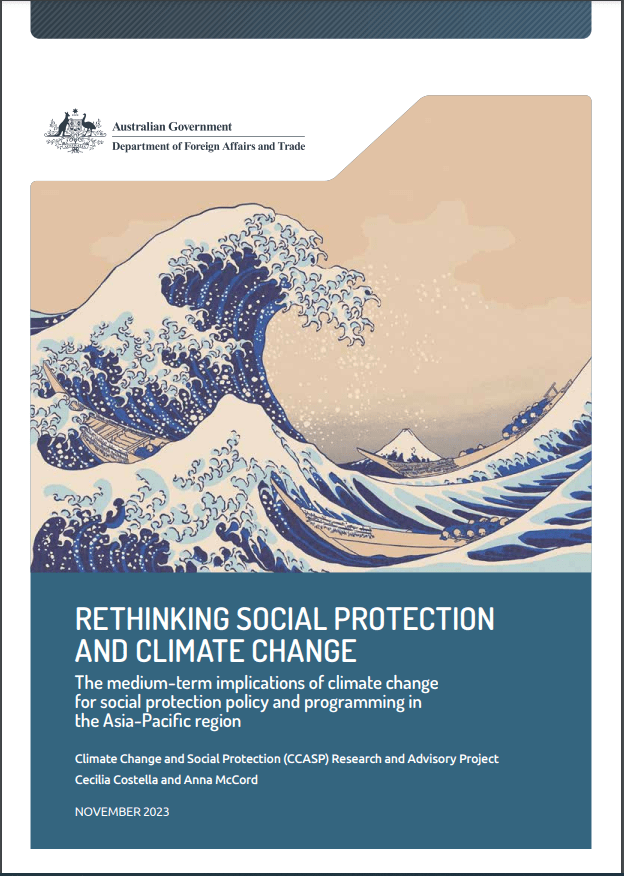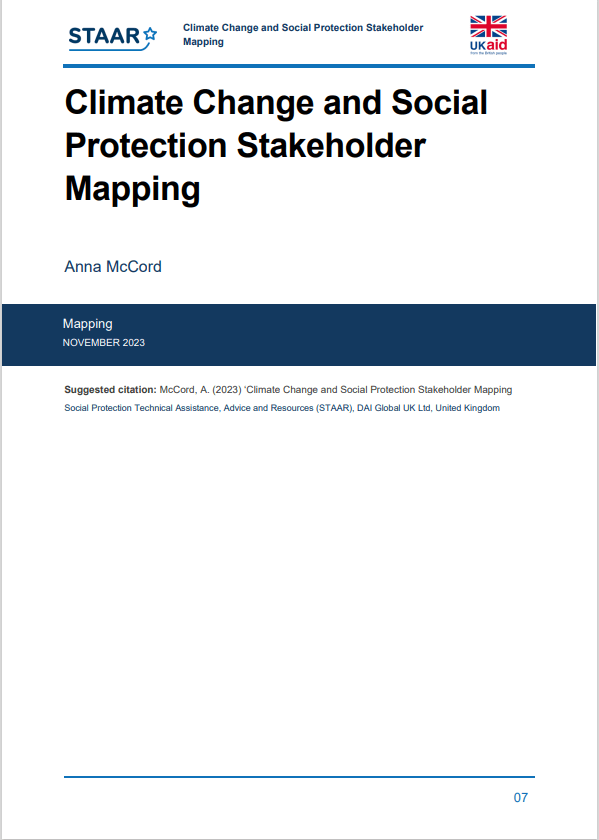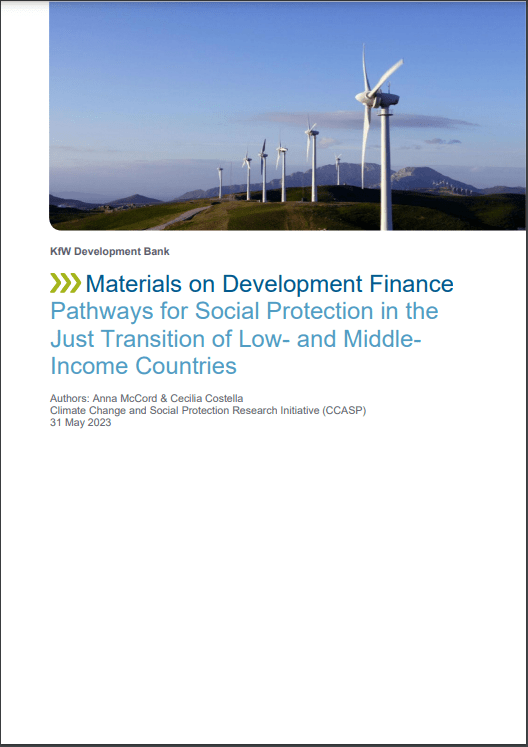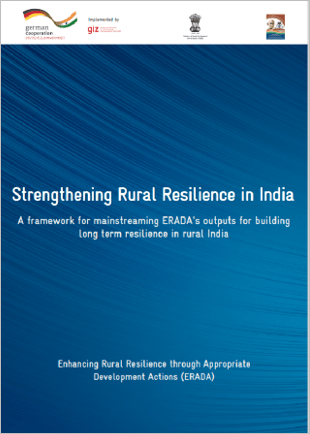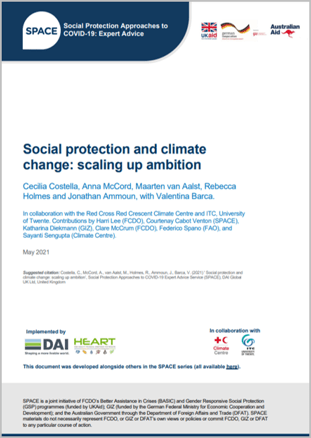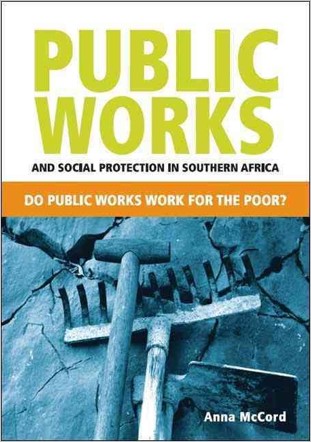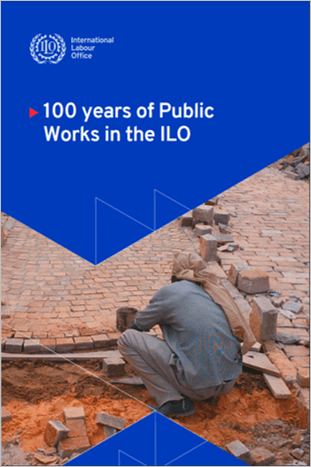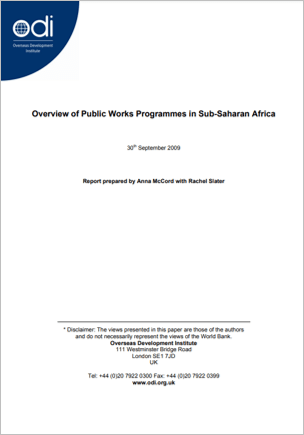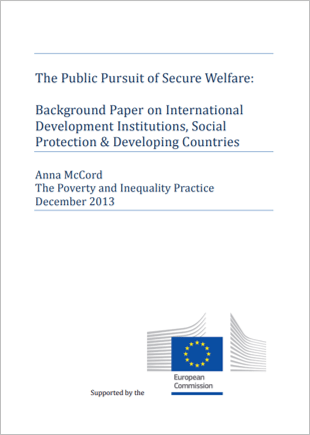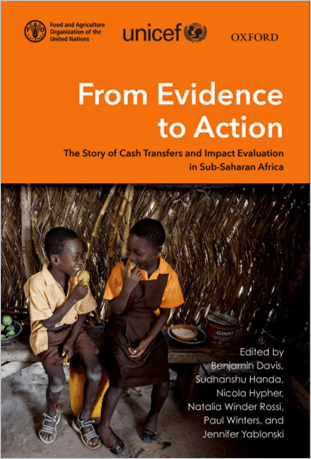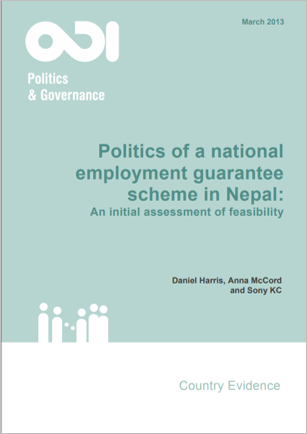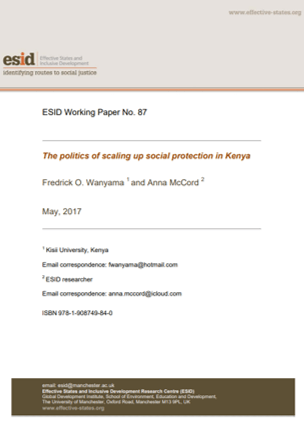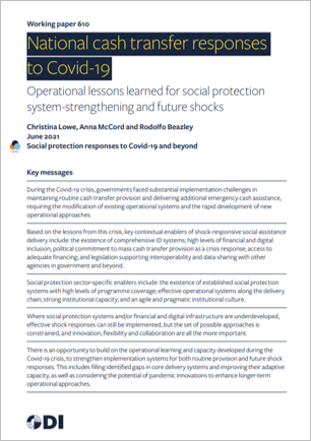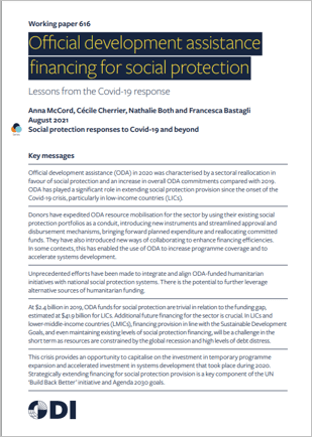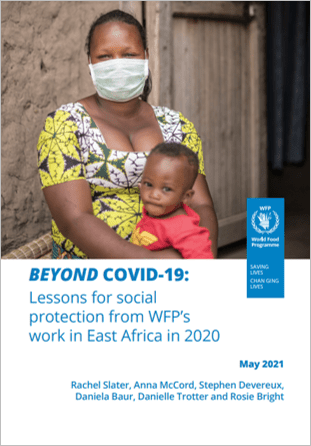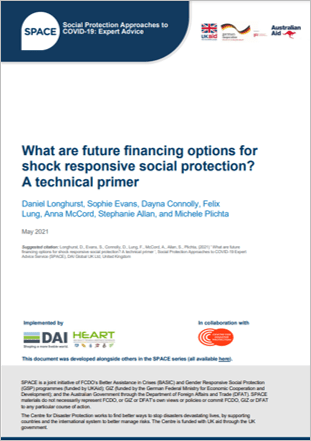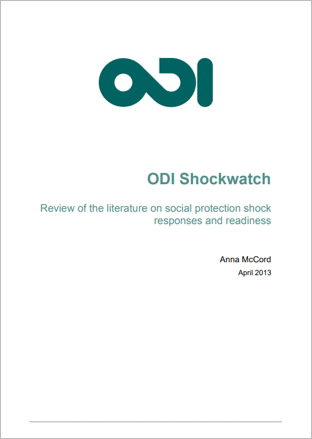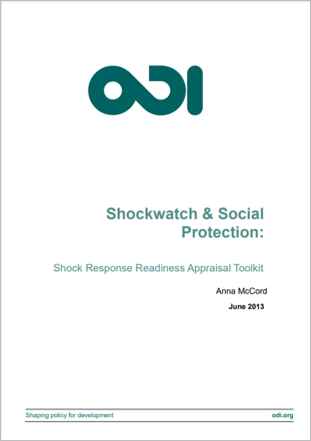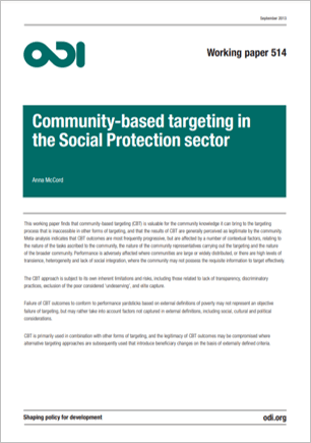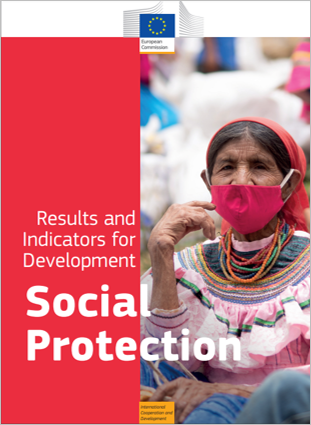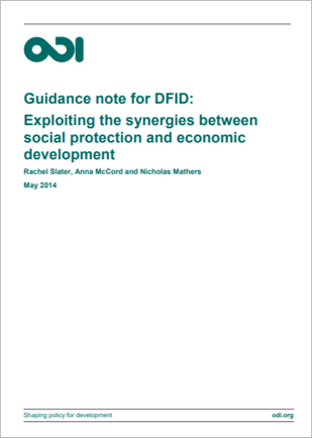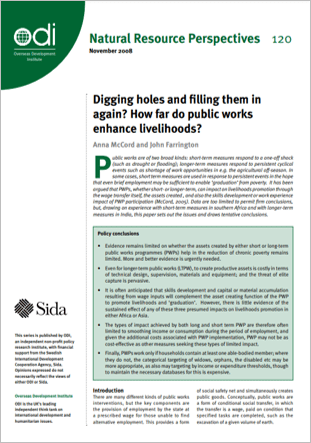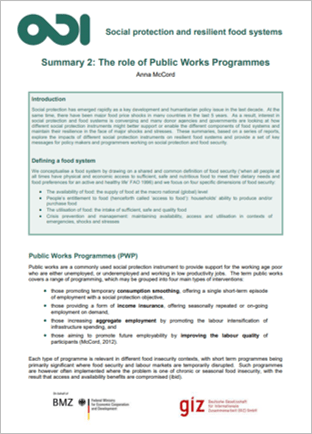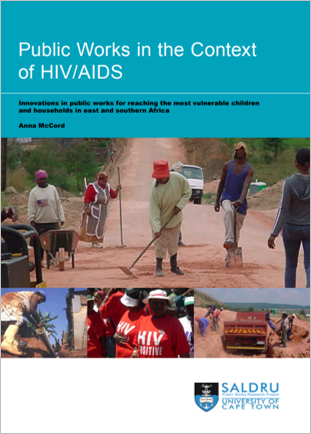- Climate Change and Social Protection
- Public Works
- Political Economy of Social Protection
- Covid-19 and Social Protection
- Shock Responsive Social Protection
- Targeting Social Protection
- Evaluation of Social Protection
- Natural Resource Management and Social Protection
- Economic Development and Social Protection
- Food Security and Social Protection
- HIV and Social Protection
Climate Change and Social Protection
In my work on social protection and climate change with Cecilia Costella we are trying to look at the implications of climate change for the current social protection discourse and identify innovations in programming which are starting to take the socio-economic impacts of geophysical change into account and may offer options for future design. Every aspect of the current social protection discourse will be challenged in the coming decades and we are working to support new thinking in terms of design, delivery, financing, and scale. We are currently taking this work forward through the CCASP Climate Change and Social Protection research initiative funded by DFAT.
I am also working with the USB2030 Working Group on Climate Change hosted by socialprotection.org.
Key reads
Public Works
Over the last two decades my work has largely focussed on examining the role that public works can and do play as tools for social protection. Having experienced some excellently conceptualised and implemented programmes, and then some which fell far short of their anticipated impact I started exploring the factors that lead to more and less successful programme design. This work was taken forward initially in Southern Africa, working out of SALDRU, in the School of Economics at the University of Cape Town, with under the legendary – and much missed – late Professor Francis Wilson and the visionary Professor Murray Leibbrandt, and later, with Professor Rachel Slater in the Social Protection team at ODI.
Realising that as social protection instruments Public Works Programmes did not enjoy a similar level of scrutiny as the potential alternative response to poverty, cash transfers, I have worked over the last two decades to promote critical enquiry and learning about their potential and shortcomings.
The main conceptual and empirical findings of my first decade working on PWP are presented in my book, Public Works and Social Protection in sub-Saharan Africa: Do public works work for the poor? which raises some of the key challenges and dilemmas in using PWP as a tool for social protection. It is based on my PhD – but don’t let that put you off… While at ODI I also worked with Rachel Slater on the first attempted empirical overview of public works programmes across Sub Saharan Africa.
In collaboration with Mikael Lieuw Kie Song and Mito Tsukamoto of the Employment Policy Department I have recently completed a history of PWP in the ILO based on original research in the ILO archive, which revealed a century long relationship between the organisation and the promotion of large scale PWP as a key instrument for promoting macroeconomic destabilisation – offering an interesting lesson for demand stimulus programming today, and also highlighting the more negligible role of smaller and less ambitiously financed interventions
I have also worked with Mito and Maikel on several other ILO initiatives, including a chapter on the potentially transformative role of employment intensive investment in the 2020 ILO Global Employment Policy Review.
Key reads
Given social protection policy choices and design are highly dependent on the development paradigm in which they are located, and the fact social policy thinking in developing countries is in many instances heavily influenced by external ideological agendas, I have worked to explore these issues in several pieces of work over the last decade. I have attempted to highlight the political economy issues which underly the social protection discourse and make them explicit in a way that is accessible to social protection actors. I have worked from both the international perspective looking at the discourse promoted by major development agencies, and also at political economy issues at national level which are key in terms of sector development and the sustainability of donor supported initiatives, the latter in collaboration with IFAD, ODI and ESID at the University of Manchester, in collaboration with Professor Sam Hickey, and Professor Fredrick Wanyama.
The Public Pursuit of Secure Welfare commissioned by the European Commission – explores the way that historic ideological differences and institutional competition, most notably, but not exclusively, between the ILO and World Bank, have influenced the development of the sector over recent decades.
The Political Economy of Cash Transfers, research commissioned by UNICEF and carried out in collaboration with Jen Yablonski and Natalia Winder Rossi explores the issues at a country level, considering the extent to which evaluation can inform policy development, as does the work completed for IFAD which explores the impact of development actors on policy development, from a recipient government perspective.
Key reads
Covid-19 and Social Protection
During lockdown in 2020 I worked with ODI and also the CIDT and SPACE on trying to identify what we could learn in real time from current social protection responses to Covid-19 in terms of both programme design and financing.
Key reads
Targeting Social Protection
In the early 2010s in the context of the highly contested promotion of the Proxy Means Test (PMT) approach for targeting social protection provision, by the World Bank, I was commissioned, by the Bank, to look at the literature on alternative targeting approaches,building on the seminal work by Margaret Grosch, David Coady and John Hoddinott (Coady, Grosh, and Hoddinott, 2004).
The result was Community-based targeting in the Social Protection sector, an overview of the outcomes documented for a range of targeting approaches which offered an interesting and measured critique of the blanket promotion of PMT and suggested a practical basis for thinking more inclusively about alternative approaches, including community-based targeting, depending on the context. Although it was reviewed positively by Margaret Grosh as a valuable extension to the debate, administrative delays meant that the report was not published by ODI for several years and it has not been widely read or cited.
Key reads
Evaluation of Social Protection
I have carried out many evaluations of social protection programmes and PWP, but most are not in the public domain for obvious reasons. However, I have completed two pieces of work for the European Commission examining indicators for measuring social protection performance.
I have also worked with Simon Levine and Eva Ludi at ODI on developing an innovative and pragmatic methodology for the appraisal of the impact of PWP assets as NRM resources in their own right, and their impacts on livelihoods, to test the easy and uncritical assumptions made particularly by donor agencies, about the impact of assets on livelihoods and sustained poverty reduction. This was through the LIPA programme (Livelihoods Impact of PWP Assets) funded by DFAT. The challenge we were trying to address is set out in the attached PPT, ‘Developing Practical Methodologies to Assess the Spatial, Temporal and Socio-economic Distribution of the Impacts of Public Works Programme Assets’. We hope to share an updated version of the research findings in the coming months.
Key reads
Natural Resource Management and Social Protection
Pending on NRM
Key reads
Economic Development and Social Protection
While it is often assumed that social protection in general, and PWP in particular, will deliver economic development outcomes as well as reducing the immediate poverty of recipients, the realities of limited programme scale and duration, the low value of the transfer, and in the case of PWP, poor selection, execution and maintenance of assets often means that the anticipated ‘spillover’ benefits in terms of economic development are not observed. I carried out some work in the mid 2010s to explore the conditions under which such benefits might be observed, and the factors which inhibited such outcomes as part of a wider project ODI project looking at the hoped for ‘synergies between social protection and economic development’. The issues of PWP asset impact on individual livelihoods and community development are also explored in the LIPA programme, discussed above.
Key reads
HIV and Social Protection
At the time I started work on PWP, in the early 2000s, HIV was still high on the development agenda, and I was commissioned to carry out two pieces of work, the first by UNICEF and the second by ILO, looking at lessons relating to PWP and Social Protection interventions more widely, in terms of how they might be designed to support those infected and affected by the virus.
